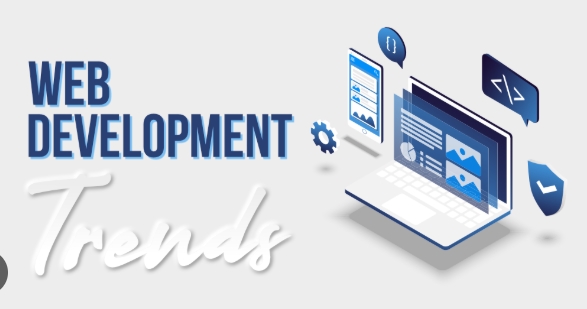1. AI-Powered Websites
Artificial intelligence is enhancing personalization, chatbots, and recommendation engines.
- AI chatbots for better user engagement and customer support.
- Personalized content and recommendations using AI algorithms.
- AI-assisted web design tools for faster prototyping.
2. Progressive Web Apps (PWAs)
PWAs offer app-like experiences in the browser with offline support and fast loading.
- Offline functionality with service workers.
- Push notifications for better engagement.
- Cross-platform experiences without native apps.
3. Serverless Architecture
Serverless computing allows developers to focus on code without managing infrastructure.
- Faster deployment and scaling.
- Cost-efficient as you pay only for actual usage.
- Reduced server maintenance and monitoring overhead.
4. WebAssembly (WASM)
WebAssembly enables running high-performance applications in the browser.
- Bringing desktop-level performance to web apps.
- Supports languages like Rust, C++, and Go in the browser.
- Improves gaming, video editing, and CAD applications online.
5. Motion UI & Micro-Interactions
Interactive animations and micro-interactions improve user engagement and experience.
- Hover effects, loading animations, and transitions.
- Guides users subtly through UI actions.
- Increases perceived responsiveness of websites.
6. Low-Code & No-Code Platforms
Accelerate web development and empower non-developers to create functional apps.
- Drag-and-drop interfaces for web app creation.
- Integrations with APIs and third-party services.
- Speeds up prototyping and reduces development costs.
7. Cybersecurity-First Approach
Security remains a top priority with increased cyber threats and data privacy regulations.
- Enhanced authentication (MFA, passwordless logins).
- Secure coding practices and automated vulnerability scanning.
- Data encryption and compliance with regulations like GDPR and CCPA.
8. Single Page Applications (SPA)
SPAs provide smooth, app-like experiences without full page reloads.
- Faster navigation and reduced server load.
- Popular frameworks include React, Vue.js, and Angular.
- Better control over client-side rendering and UI state.
9. Voice Search Optimization
With smart assistants, websites need to adapt for voice queries and conversational interfaces.
- Structuring content for voice-friendly responses.
- Integration with voice assistants like Alexa, Siri, and Google Assistant.
- Improved accessibility and user experience.
10. Green Web Development
Eco-friendly web design focuses on reducing energy consumption and carbon footprint.
- Optimizing images, code, and server usage.
- Using sustainable hosting services.
- Minimalistic designs that load faster and consume less power.
Quick Tips
- Keep learning and adopt emerging frameworks and tools.
- Prioritize performance, accessibility, and mobile-first design.
- Regularly update security practices and monitor for vulnerabilities.
- Use analytics to optimize UX and conversion rates.
